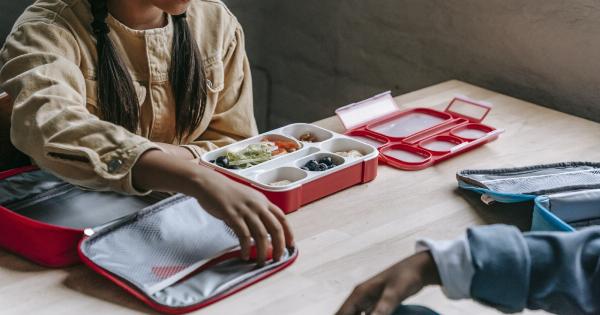As a parent, sending your kid to school knowing they have allergies can be a daunting task. You worry about whether they will be safe while in school or if they will have an allergic reaction.
Fortunately, there are tips parents with allergic children can follow to ensure their child’s safety while at school.
1. Identify and share your child’s allergies with school personnel
It’s important to inform your child’s school personnel about your child’s allergies. This includes his or her teacher, school nurse, and any other relevant staff members.
You should provide written documentation of your child’s allergies to the school and make sure they are clearly marked in your child’s file and shared with anyone who may need to treat your child in case of an emergency.
2. Educate your child on allergy management
It’s essential to educate your child on how to manage their allergies independently. This include teaching them how to identify and avoid allergens, how to take their medication, and when to seek medical help.
You should also teach your child how to be vocal about their allergies when necessary, so they can express their concerns to their teachers or any other school staff.
3. Pack safe and allergy-free food for snacks and lunches
One way to prevent allergic reactions from consumed foods is to pack safe and allergy-free food for your child’s snacks and lunches.
You should ensure that the foods are devoid of allergens, including nuts, dairy, eggs, soy, wheat, fish, or shellfish, and make sure to label the food appropriately. It’s also important to ensure that your child’s utensils, water bottles, and containers are cleaned thoroughly before being used.
4. Teach your child how to read food labels
Make sure your child is aware of how to read food labels to ensure they avoid allergens. Teach them to check product labels for ingredients that may contain allergens.
Children should know to look out for phrases like “contains nuts,” “may contain wheat,” “made in a facility that processes soy,” and so on. You can help your child practice identifying allergens in the foods by pointing them out at home.
5. Encourage your child to wash hands frequently
Washing hands frequently, especially before eating or touching their eyes, nose, and mouth, is crucial to prevent allergic reactions. Encourage your child to wash their hands when they get to school, right before a meal, and after using the bathroom.
It’s also important to teach them how to use hand sanitizers to prevent germs and bacteria from being transferred to their eyes or mouth.
6. Advocate for a safer environment in school
As a parent, you can play an active role in advocating for a safer environment for allergic children in school. This includes attending school meetings, talking to school personnel, and other parents, and forming a parent support group.
You can also advocate for allergy-free zones in the school or for schools to adopt nut-free policies.
7. Teach your child to stay safe outside the classroom
It’s essential that you teach your child to manage their allergies outside the classroom. This is especially important when children attend after-school activities, field trips, or when they visit a friend’s house.
Providing your child with an epinephrine auto-injector and making sure they know how to use it correctly is also essential.
8. Schedule regular check-ins with your child’s doctor
Having regular check-ups with your child’s healthcare provider helps you keep track of your child’s allergies and any modifications that may be required with their medication.
It also enables you to discuss any concerns you have and how to manage adverse reactions.
9. Train teachers and staff members on how to use epinephrine auto-injectors
Teachers and other school personnel should be trained on how to use epinephrine auto-injectors in case of an emergency. They should be familiar with the signs of an allergic reaction and how to administer the epinephrine auto-injector.
You can offer to teach a training session for teachers and other relevant school personnel.
10. Encourage your child to speak up about their allergies
It’s important to help your child understand the importance of advocating for their health. Encourage them to speak up about their allergies, ask questions when they need clarification and seek help whenever they feel unsure about anything.
Having an open dialogue with your child about their allergies, helps them understand their needs, and empowers them to take ownership of their health.





























